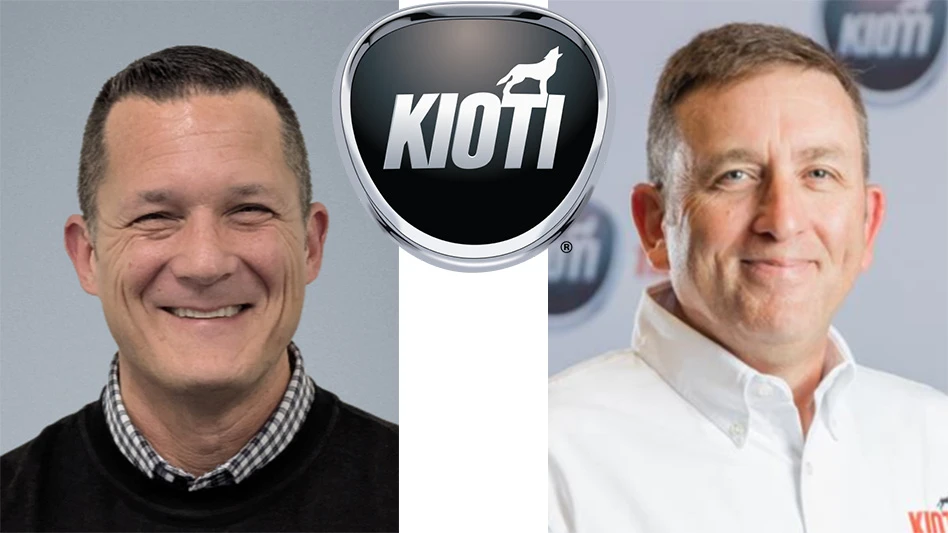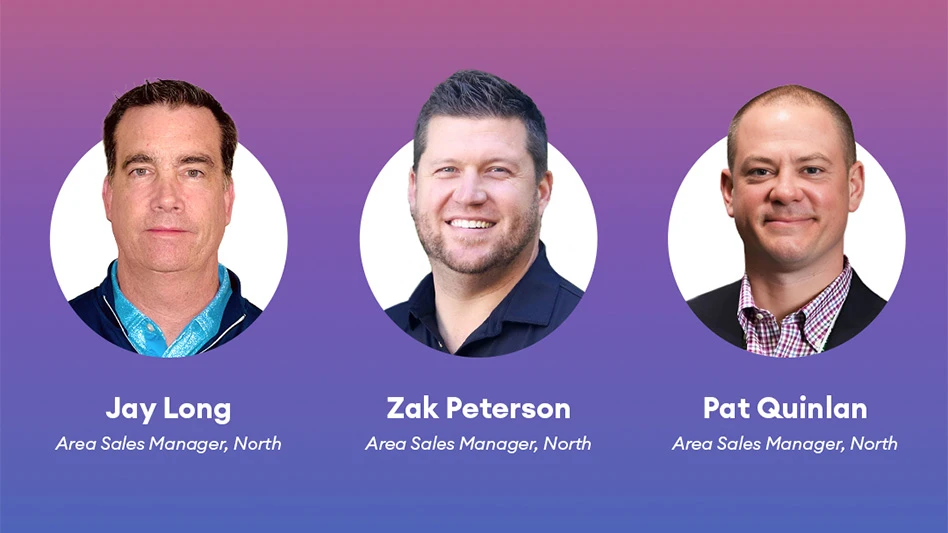Every day at work, a golf course superintendent – or any manager, for that matter – runs the risk of damaging his or her personal brand – even if they don’t think they have one.
A personal brand is the way people perceive, think and feel about a manager in relation to others. The people who work at an organization already have perceptions, thoughts and feelings about their superiors, so just by virtue of being “the boss” in the workplace, a manager already has a personal brand.
The question is whether a golf course superintendent has the personal brand he wants – one that is bringing them greater success or holding them back. Not knowing the answer to this question could mean the difference between a department that stays land-locked and one that skyrockets. Here are eight ways to keep personal brand damage under control.
Get clear about what your current brand stands for right now. This means discovering how people perceive, think and feel about you in the present moment. Enlist a friend you trust to ask several work colleagues for the top five words they would use to describe you. Are you described the way you want to be? If not, your personal brand needs some adjustments.
Determine where you need to make immediate changes. If you aren’t happy with the results of your research, that’s good news. Why? Because it will clarify exactly what you need to change to create the brand you want.
Define carefully what you want your brand to be. Once you have an idea of where your current personal brand is failing, you need to define your desired personal brand. Most people struggle with their personal brands because they haven’t taken the time to clearly define them. Not having a personal brand definition is like meandering from point A to point B without a map. You might get there eventually, but you’ll make a lot of wrong turns along the way.
So, take some time to consider: How do you want to be known? What are your strengths, and how can you best fill the needs of your brand’s “target audience” – i.e., your employees and/or your customers?
Communicate your brand effectively. Defining your desired personal brand is an important first step, but if it remains on a piece of paper in a drawer, it won’t do you much good. In other words, no one’s perceptions, thoughts or feelings about you will change unless and until you communicate the personal brand you really want.
So, keep your personal brand definition in mind as you go about the top five activities that all of us do every day. These activities best communicate what you stand for: your actions, reactions, look, sound and even your thoughts. The key to success is being consistent with these five activities – in what you say, do and think – day-in and day-out.
Do you act like someone with your desired personal brand would act? Do you stop yourself before reacting negatively to situations that arise? Do you look and sound like someone with your desired personal brand? And, yes, do you think like someone with your desired personal brand?
Thoughts are incredibly powerful and can not only affect your own feelings but how others perceive, think and feel about you as well.
Avoid damaging your personal brand. After you have defined your personal brand and created a plan for communicating it, you also need to take special care to keep it intact. How do you do that? One way is to watch others and learn from their mistakes. Even if you don’t know anyone personally who has damaged their personal brand, you have certainly heard of celebrities who have made serious blunders. For some of them, the damage has been so severe that their careers have never bounced back. So, pay attention to what others do that damages their personal brands, and avoid doing the same things.
Be aware of your own mistakes and fix them quickly. If you do commit a personal brand blooper, do whatever is necessary to fix it. Apologize for it, show that you take responsibility for your errors, and go out of your way to correct them. This promotes a positive personal brand.
Learn from your errors to avoid making them again. When you realize your brand has taken a beating after a mistake, ask yourself: “What did I learn from this?” Write down the lessons and make a commitment to never make that mistake again.
Keep a sense of humor. Most importantly, if you make a personal branding mistake, be willing to laugh at yourself. Everyone likes to work with someone who doesn’t take themselves too seriously. GCI
Brenda Bence is a consultant and business coach based in Las Vegas.
Honing personal brand
“Personal branding" refers to distinguishing characteristics that gives something an easily, quickly recognizable image. Simply put, it's what a business, product, service or even an individual stands for in terms of quality, dependability, security and niche. At a golf course, these characteristics allow you and your facility to thrive.
You always want your members, players, even staff and superiors to associate you with a positive, upbeat and successful experience. A loyal -- particularly a brand-loyal -- base should be the ultimate goal of successful personal branding. You can achieve this by establishing yourself as an authority or a leading expert in a particular profession, service or niche.
Some small-business industry experts argue that personal branding isn't so much about being overly concerned with standing out from others, but melding all of your experiences through a period of time into one. Personal branding isn't based solely on a created perception. It encompasses total experiences into the creation of a final product or service. Uniqueness and outstanding qualities occur naturally from there. It should inspire and, perhaps, empower you to examine what your colleagues and competitors are doing, and how you can stay a step ahead or add a different spin to your product. Consider these key points:
Include a uniqueness of product or a service-marketing niche. Promote the one-of-a-kind or you'll-never-find-this-anywhere-else distinctiveness.
Promote and highlight your strengths.
Your personal brand should match the perception that people have of you and your services. Some argue that we're all branded from birth, and the overall perception people have of you as an individual also parlays into your business' image. Some experts contend that there is a standard formula for branding that, if followed, will yield positive results. They are:
• Define your values. Since it's common to become enmeshed in a corporate culture delegated by an employer, clarify your position as an entrepreneur.
• Be original. Personal brands are not created or invented; they're experienced. Personal brands are defined by businesses that are willing to allow their talents to stand out without presenting themselves or products/services as phonies.
• Become visible. Marketing yourself and your company is the key element in promoting a personal brand. You can accomplish this by participating in panel discussions, teaching at a local college or writing regularly for a Web site or newspaper.
• Establish and maintain relationships. Personal relationships can and often do transcend into business relationships. Solid credentials and positive interactions with people will likely dictate the possibilities of long-standing relationships.
Ultimately, personal branding is synonymous with niche marketing. Major restaurants and some corporations have logos that automatically identify their organization with a particular service or product. As a small-business owner, you, too, can develop a logo and/or catchphrase that will quickly identify your company or brand to customers. -- NFIB.com

Explore the February 2011 Issue
Check out more from this issue and find your next story to read.
Latest from Golf Course Industry
- PBI-Gordon promotes Jeff Marvin
- USGA investing $1 million into Western Pennsylvania public golf
- KemperSports taps new strategy EVP
- Audubon International marks Earth Day in growth mode
- Editor’s notebook: Do your part
- Greens with Envy 66: A Southern spring road trip
- GCSAA’s Rounds 4 Research auction begins
- Quali-Pro hires new technical services manager





